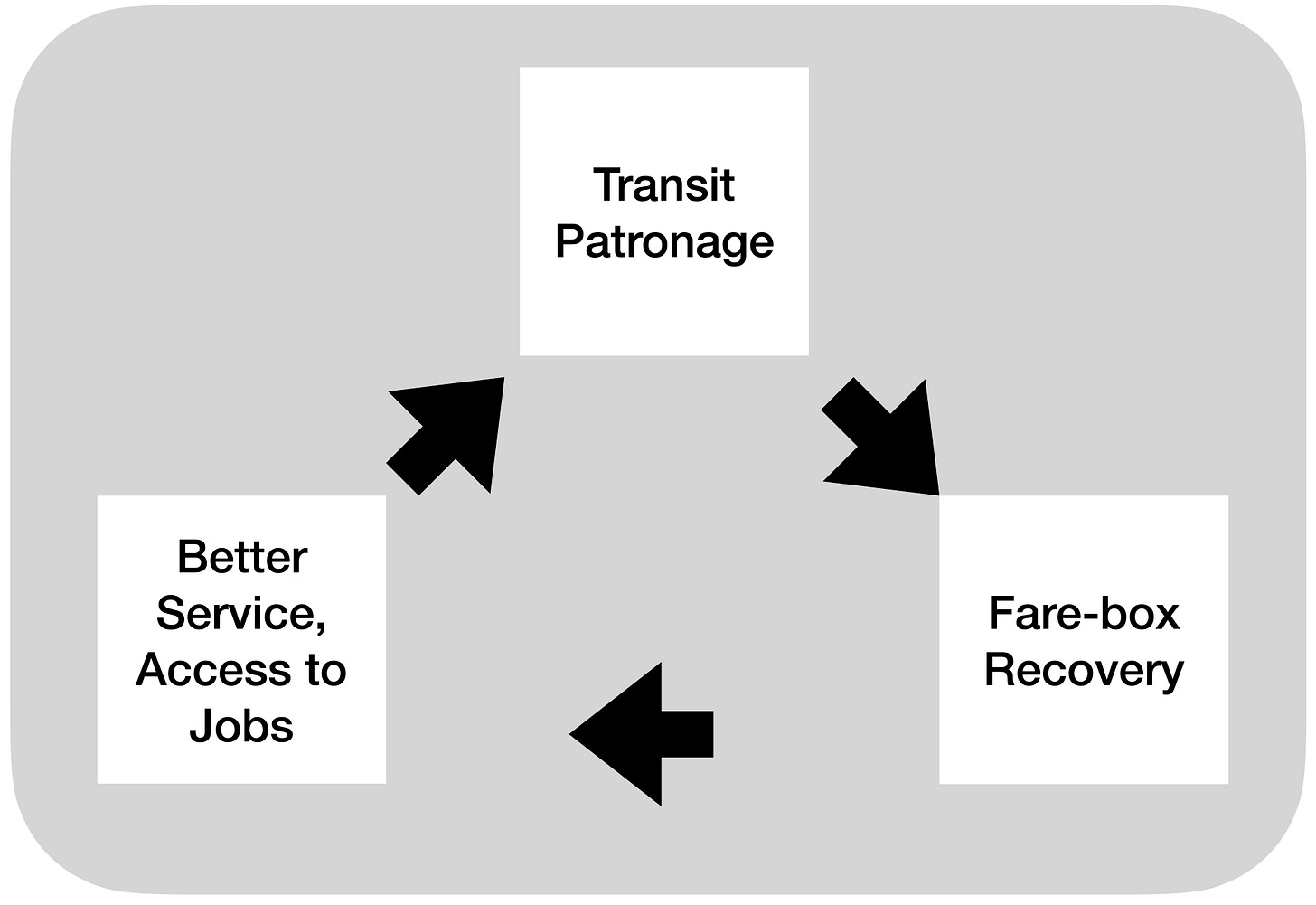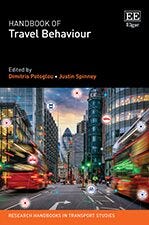Access, the built environment, and behavior
Chapter in Handbook of Travel Behaviour
Recently published:
Levinson, D. and Wu, Hao (2024) 14. Access, the built environment, and behavior in Handbook of Travel Behaviour, edited by Dimitris Potoglou, Justin Spinney. Edward Elgar publishers. [doi] [OA preprint]
Abstract
Access is an essential component of the built environment that measures the ease of reaching desired destinations; the level of access is a combined result from both land use and transport infrastructure. Other facets of the built environment include density, street design, pedestrian and bike infrastructure, policy, etc. Individual travel behaviour is shaped in part by the built environment, which has implications for both the well-being of individuals, and the sustainability and vitality of a city. The built environment of a city is in a continuous state of change; developments in Information and Communications Technology (ICT), and work-from-home (WFH) have the potential to redefine the meaning of the built environment, and access. This chapter discusses the evolving interaction between access, the built environment, and travel and activity patterns, and what these changes would mean for the future of transport.

About the Book
Blurb: This insightful Handbook offers a comprehensive and diverse understanding of the determinants of travel behaviour, looking at the ways in which it can be better understood, modelled and forecasted. Dimitris Potoglou and Justin Spinney bring together an international range of esteemed academics who explore the origins of the field, research analysis methods, environmental considerations, and social factors.
Contents:
Preface xi
1 Introduction to the Handbook of Travel Behaviour 1
Dimitris Potoglou and Justin Spinney
PART I ORIGINS AND FOUNDATIONS
2 Travel behavior and travel behavior analysis 16
Konstadinos G. Goulias
3 Travel behaviour: theoretical foundations 30
Eric J. Miller
4 The state of travel behavior research: a bibliometric assessment of
transportation journals 55
Sung Hoo Kim and Patricia L. Mokhtarian
5 Integrated land use and transport models 80
Hanna F. Maoh and Khandker Nurul Habib
6 Travel behaviour change 99
Erel Avineri
PART II DATA AND ANALYSIS IN TRAVEL BEHAVIOUR RESEARCH
7 Modelling travel behaviour: a choice modelling perspective 118
Silvia F. Varotto, Rico Krueger and Michel Bierlaire
8 Demystifying experimental design processes for stated choice experiments 140
John Rose
9 Time use and activity-travel behavior analysis: recent developments and
emerging trends 161
Aupal Mondal, Katherine E. Asmussen, Chandra R. Bhat, Abdul Pinjari
and Ram Pendyala
10 Establishing causality using observational panel data: models and
applications 180
Maarten Kroesen and Sander van Cranenburgh
11 Data for travel behaviour research: recent advances, challenges and
opportunities in the era of smart cities 197
Sylvia Y. He, Sui Tao, Zhenzhen Wang and Shuli Luo
12 Exploiting social media to better understand travel behaviour and mobility 219
Siroos Shahriari, Alireza Abbasi and Taha Hossein Rashidi
13 Travel behaviour research in the age of machine learning: opportunities
and challenges 238
Arash Kalatian and Charisma Choudhury
PART III THE BUILT ENVIRONMENT, TRAVEL MODES AND BEHAVIOUR
14 Access, the built environment, and behavior 256
David Levinson and Hao Wu
15 Modeling vehicle ownership in an era of technological changes 279
Cinzia Cirillo and Lavan T. Burra
16 Travel behaviour: is there a role for public transport? 303
John D. Nelson
17 Micromobility and shared mobility 320
Alexandros Nikitas
18 Behavioral and sociodemographic impacts of carsharing 339
Susan A. Shaheen and Alexandra Pan
19 Mobility as a Service, new technologies, service-based travel 364
David A. Hensher and Chinh Q. Ho
PART IV SOCIAL FACTORS, DISRUPTIONS AND CONTEXTS
20 Interactions between health and travel behaviour 389
Jennifer S. Mindell and Angela Curl
21 Travel behaviour of older people 412
Charles Musselwhite and Amy Murray
22 Travel behaviour and disruptions 435
Greg Marsden
23 Travel behavior and extreme events: cases of the Covid-19 pandemic
and transit disruption and their impacts on activity patterns 457
Mohammadjavad Javadinasr, Ehsan Rahimi and Abolfazl (Kouros)
Mohammadian
24 Travel behaviour in the developing world: challenges and opportunities 479
Agnivesh Pani, Hridya Geetha Muralidharan and Prasanta K. Sahu
25 Concluding summary and future directions for travel behaviour 505
Justin Spinney and Dimitris Potoglou


